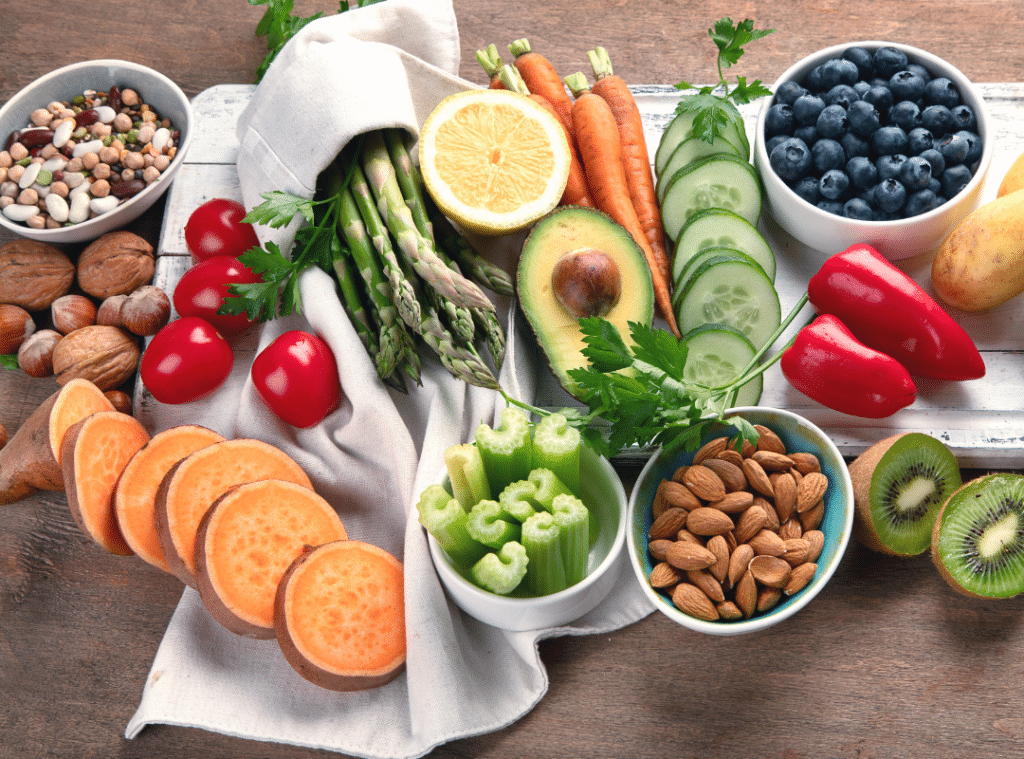As our loved ones age, maintaining proper nutrition can become a challenge—especially when chewing or swallowing becomes difficult. A soft diet for seniors provides a practical, comfortable, and nutritious solution that ensures safety without compromising flavor or enjoyment.
Whether your goal is to reduce the risk of choking, support weight gain, or increase protein intake, adopting a soft diet for seniors can promote better health and enhance quality of life. At Westmont of Cypress, our approach integrates high-calorie soft foods for elderly individuals, tailored meal plans, and engaging dining experiences to deliver comprehensive support.
Learn more at Westmont of Cypress.
Why a Soft Diet Matters for Senior Health
Aging can bring several changes that impact dietary needs—ranging from dental issues to reduced appetite or dysphagia (swallowing difficulties). A soft diet for seniors makes meals easier to consume, reduces the risk of choking, and helps maintain nutritional balance. Soft foods are typically rich in nutrients while being gentle on the digestive system, providing seniors with energy and vitality without discomfort.
Incorporating flavorful herbs and spices boosts taste without relying on heavy salt or processed sauces. This diet is especially vital for those with compromised chewing ability or recovering from surgery, making nutrition more accessible and enjoyable.
For further insights on nutrition and aging, visit this NIH page on senior nutrition.
Best Soft Foods for Seniors With Swallowing Issues
When managing soft foods for seniors with swallowing issues, the priority is on safety and ease without sacrificing nutrition. Key food choices include:
- Mashed bananas, pureed peaches, and applesauce for soft, naturally sweet fruits.
- Steamed carrots, mashed potatoes, and pureed squash for smooth vegetable options.
- Oatmeal, rice porridge, or well-cooked pasta for easy-to-digest grains.
- Scrambled eggs, yogurt, and cottage cheese for protein.
These foods provide essential nutrients while ensuring safe and comfortable consumption. Learn more about dietary programs designed to address swallowing difficulties through tailored nutrition programs.
High-Calorie Soft Foods to Support Energy Needs
For seniors with limited appetite or those needing to gain weight, high-calorie soft foods for elderly individuals play an important role. Some nourishing, calorie-dense ideas include:
- Full-fat Greek yogurt blended with honey or nut butter
- Smoothies made with bananas, protein powder, and almond milk
- Creamy soups like loaded potato or lentil with added olive oil or cream
- Mashed avocado on soft bread or crackers
- Cottage cheese with fruit puree or jam
These meals and snacks not only pack in the calories but also deliver essential vitamins, minerals, and healthy fats. Adding these into your loved one’s routine can improve energy levels and reduce unintended weight loss.
For a broader context on dietary adjustments for care needs, check out this guide to assisted living care planning.
Building High-Protein Soft Meals for Seniors
Maintaining muscle mass is essential as we age, and incorporating high-protein soft foods for elderly diets is key. Protein-rich meals can help prevent muscle loss, support healing, and boost overall strength. Some delicious soft protein ideas include:
- Scrambled or poached eggs
- Soft tofu with soy sauce and steamed rice
- Chia pudding made with milk or protein-fortified liquid
- Blended lentil soups and bean purees
- Protein-enhanced smoothies with whey or plant-based protein
These meals provide the protein seniors need while remaining easy to chew and swallow. Meal variety also keeps food interesting and ensures long-term adherence to the diet.
Easy & Tasty Soft Diet for Seniors Recipes
Finding the right soft diet for seniors recipes can make a world of difference in both nutrition and satisfaction. Below are three easy options to try:
1. Creamy Banana Oatmeal
Cook rolled oats until soft and stir in mashed banana, cinnamon, and full-fat milk. Add a scoop of protein powder for extra nutrition.
2. Butternut Squash Soup
Roast squash and onions, then blend with low-sodium broth, a splash of cream, and herbs. Garnish with pureed cottage cheese for added protein.
3. Egg Muffins
Beat eggs with cooked spinach, cheese, and soft bell peppers. Bake in muffin tins until set. These reheat well and are a perfect grab-and-go option.
Want more recipe ideas? Explore this soft food recipe collection by EatRight.org.

Involving Seniors in Their Meal Planning
Empowering seniors by involving them in their dietary decisions can lead to better health outcomes and greater enjoyment. Here’s how:
- Allow them to pick from various soft diet for seniors recipes during meal planning.
- Invite them to taste-test new ingredients or textures.
- Let them help prepare simple components like mashing fruit or whisking eggs.
This involvement fosters a sense of control and makes mealtimes more engaging. It also promotes consistent dietary habits aligned with their tastes and preferences.
Expert Tips for Soft Meal Preparation
Creating appealing and nutritious soft meals requires attention to texture and flavor. Use the following tips:
- Steam, mash, blend, or slow-cook vegetables to retain nutrients while softening them.
- Use broths, sauces, and herbs to add flavor without salt or sugar overload.
- Shape pureed foods attractively using scoops or molds to make meals look more appetizing.
- Monitor food temperature to ensure comfort and avoid burns.
- Consider portion sizes and color variety to stimulate appetite.
You can also explore additional strategies in this article on healthy meal prep for seniors.
Soft Foods and Assisted Living Dining Programs
Assisted living communities like Westmont of Cypress offer dining services that can accommodate a range of dietary needs, including soft foods for seniors with swallowing issues. These communities often employ professional dietitians and culinary teams who:
- Develop personalized nutrition plans
- Offer flexible menus with high-protein and high-calorie soft food options
- Adapt dishes based on texture and taste preferences
- Provide social dining experiences to encourage regular eating habits
Find more about this through our post on exploring dining menus for assisted living.
Ready to Elevate Mealtime? Here’s Your Next Step
Transform mealtime into a safe, satisfying, and nourishing experience by exploring the benefits of a soft diet for seniors at Westmont of Cypress. Whether your loved one is dealing with swallowing issues or needs high-calorie soft foods for elderly health maintenance, we provide supportive, flavorful solutions.
Our community focuses on custom nutrition plans, engaging dining options, and caregiver support to ensure every meal is a moment of care. Want to learn more about our soft food programs or see our dining options in person?
📞 Call us at 714-252-7144 or
📅 Schedule a tour today.
Dive into the vibrant life our Westmont communities have to offer.Find Where You Belong
Frequently Asked Questions
What are soft meals for the elderly?
Soft meals for the elderly are foods prepared to be easy to chew and swallow, especially for those with dental issues or swallowing difficulties. These meals often include items like mashed potatoes, yogurt, scrambled eggs, or well-cooked vegetables. The goal is to provide adequate nutrition without causing discomfort while eating. Soft meals also help reduce the risk of choking and ensure seniors maintain a balanced diet.
What foods are included in a soft diet?
A soft diet includes foods that are tender, moist, and easy to digest. Common options are oatmeal, soups, stewed fruits, steamed fish, and ground meats. Dairy products like pudding and cottage cheese are also widely included. These foods make eating safer and more comfortable for seniors while still providing essential nutrients.
What are five foods that seniors should eat every day?
Five essential foods seniors should eat daily are leafy greens, lean proteins, whole grains, dairy, and fruits. Leafy greens provide vitamins and minerals for overall health, while proteins like eggs or fish support muscle strength. Whole grains help with digestion and sustained energy, while dairy provides calcium for bone health. Fruits add antioxidants and fiber, supporting immunity and healthy aging.
What is a soft diet for diverticulitis?
A soft diet for diverticulitis is designed to reduce irritation in the digestive tract during flare-ups. It usually includes low-fiber foods such as white rice, cooked carrots, applesauce, and tender chicken. These foods allow the colon to rest while still providing nourishment. Once symptoms improve, fiber can gradually be reintroduced under medical guidance.








